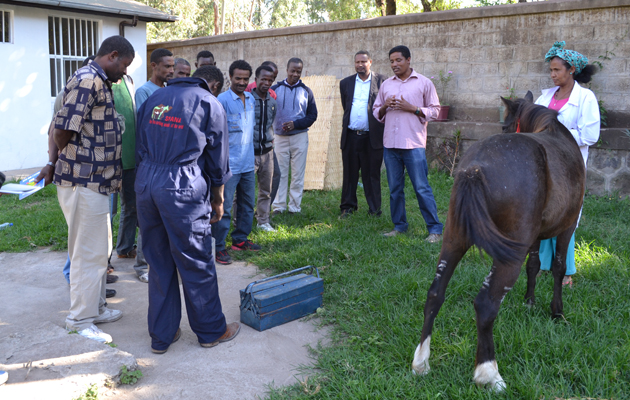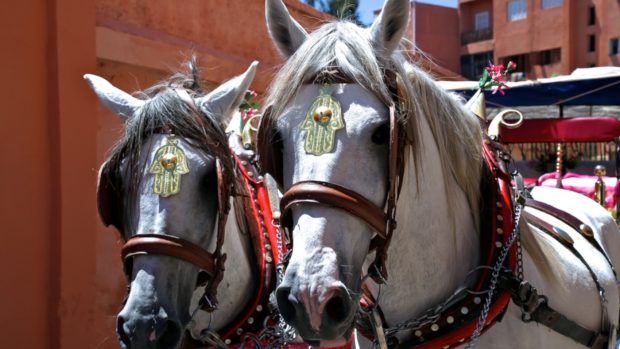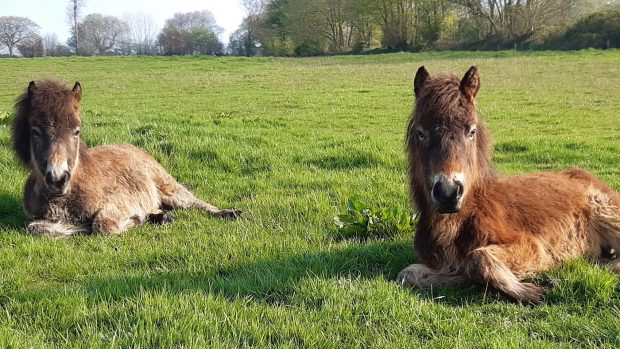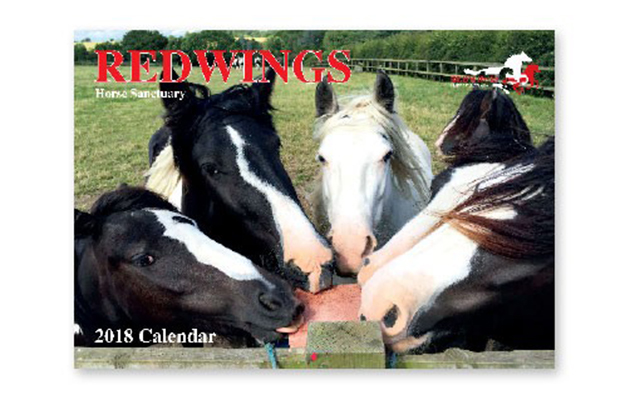In April 2014, H&H readers chose SPANA as our charity of the year. As part of our partnership with the charity, I was invited to see the work it does with working equines first hand. Earlier this month I went to Ethiopia to spend three days with the country director Dr Nigatu Aklilu to see the charity's struggle to improve the welfare of the country's 2.5 million working horses.
On my final day in Ethiopia I saw some of the education work that SPANA undertakes. While the veterinary service that the charity provides is a vital lifeline, the situation faced by working horses in the country will only improve with education.
In September a new animal handling centre was opened at SPANA’s base in Debre Zeit to give children the opportunity to interact with animals. The new centre has a selection of rabbits and guinea pigs as well as horse and a donkey that children can touch and groom.
The pony, who is called Chocolate, is great with the children, but the donkey is a little bit more of a “work in progress”…

The idea is to teach children the importance of feeling compassion towards animals. For some of the youngsters in the group I saw this was the first time they had had direct contact with animals. It is easy to forget how ingrained into our society basic respect for animals is.
The charity also runs an after-school club at more than 50 schools to give thousands of children a better understanding of animals.
Community development
As well as helping to educate the younger generation, SPANA also runs several community development projects.
In the afternoon we watched the start of a five-day farrier training programme. All of the local farriers had been invited to try to improve their skills.
There is obviously no formal training or qualification procedure for farriers in the country and many have little or no training before they start shoeing horses.

On the first day they were being taught theory and watching basic practices. The lecture that I sat in on was going through foot structure and the importance on balance. It was quite a scary realisation that all of these men were practicing farriers, yet a majority of them had never seen the inside structure of a horses foot before.
The men were going to get another four days training in the field to improve their skills and practice new techniques.
Final thoughts
My time spent with SPANA in Ethiopia has been an interesting, but brutal experience. A lot of the horses I have encountered have been in a far worse condition than I could have imagined. Even with the help of pictures and videos, it is hard to convey the situation and do justice to the work that SPANA does in the country.
Ethiopia is not going to stop having working horses — nor should it. But the more that can done to help charities like SPANA, the more the basic conditions can be improved for these animals.
How you can help
Although SPANA is working to educate Ethiopian owners to help themselves, their work relies on British owners supporting working equines worldwide.
To donate to SPANA visit: www.spana.org/donate-now




